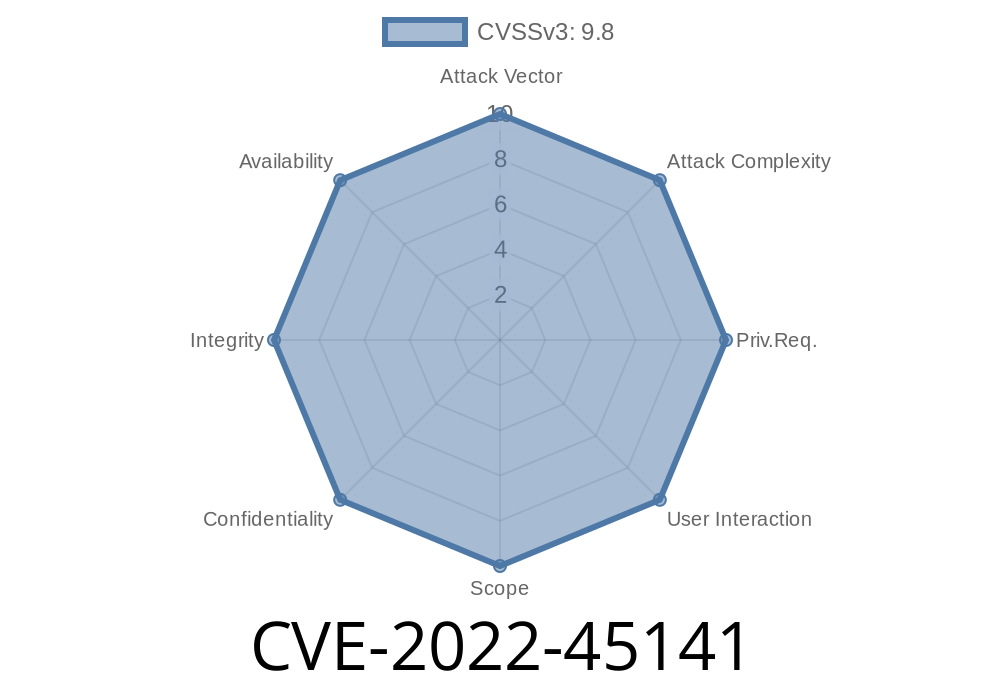On November 8, 2022, Microsoft publicly disclosed a critical security vulnerability (CVE-2022-45141) affecting the RC4-HMAC encryption type in Kerberos authentication. This vulnerability doesn't just impact Windows environments—if you’re running Samba as an Active Directory Domain Controller (AD DC), you should pay close attention. It turns out that Samba DCs may hand out Kerberos tickets using the outdated RC4-HMAC cipher, even when your servers could use much stronger encryption like AES.
Let’s break down what’s going on, why it matters, show you code snippets, demonstrate the risk with a sample exploit flow, and point you toward more info.
What’s the Vulnerability?
Back in the day, RC4-HMAC was the default encryption for Kerberos tickets on Windows networks, but over time, cryptographers and standards bodies like the IETF have found significant weaknesses in RC4 (RFC 8429). Attackers can recover passwords and decrypt information in ways that just aren’t possible with newer ciphers like AES.
Microsoft disclosed (MSRC CVE Page) that attackers can force Active Directory domain controllers—including Samba DCs—to issue Kerberos tickets using RC4-HMAC, even though the target server supports better ciphers. This "downgrade attack" gives attackers a much easier path to brute-force secrets or perform other high-impact attacks.
Why Samba Active Directory DCs Are At Risk
Samba is a popular tool for running open-source AD DCs (especially in labs, small businesses, and educational networks). But according to recent findings, even with enhanced encryption available, Samba DCs will issue Kerberos tickets using RC4-HMAC if the client or the protocol negotiation process allows it.
That means your network might be wide open to credential theft or privilege escalation attacks, even if your domain-joined servers could happily support much stronger crypto.
How the Downgrade Works
When a user logs into a Windows (or Samba) domain, the Kerberos protocol negotiates which encryption to use for their ticket. If RC4-HMAC is enabled, it may win out as the lowest common denominator, especially if an attacker tampers with the negotiation or if legacy clients are present.
Here's a simplified code snippet showing what might go wrong in server-side config
# /etc/samba/smb.conf (typical configuration snippet)
[global]
server role = active directory domain controller
# If these are available, Samba still allows RC4-HMAC by default
# The following disables only SMB1, not RC4-HMAC in Kerberos!
min protocol = SMB2
In this configuration, the DC will still issue RC4-HMAC encrypted tickets, exposing you to potential attacks.
Exploiting the Issue: Sample Attack Flow
1. Attacker requests a Kerberos ticket for a service using their low-privileged account. The client or attacker can manipulate negotiation so that RC4-HMAC is selected, even if stronger ciphers are supported.
2. Domain Controller (Windows or vulnerable Samba) issues a Kerberos service ticket encrypted with RC4-HMAC.
Attacker captures the ticket (e.g., with a packet sniffer or local access).
4. Attacker brute-forces the RC4-HMAC encryption key (possible due to weak cipher) or uses tools like *Rubeus* or *Impacket* to extract credentials or impersonate users.
Sample Rubeus command for ticket extraction
Rubeus.exe asktgt /user:alice /rc4:<NTLM_hash_of_alice> /domain:example.com /aes256:no
This will request a Kerberos TGT using only RC4 (and skip AES encryption), despite AES being available.
Reference Links
- Microsoft Security Response - CVE-2022-45141
- Samba Security Advisory (CVE-2022-45141)
- RFC 8429: Deprecation of RC4-HMAC-EXP and RC4-HMAC in Kerberos
Update Samba and Windows patches promptly. Recent versions mitigate RC4-HMAC use by default.
3. Audit your domain’s Kerberos traffic with network sniffers or tools like *Kerberos Authentication Analyzer* to detect RC4 use.
Final Words
The lesson of CVE-2022-45141 is clear: legacy crypto can put your whole AD at risk, even if you think you’re running strong ciphers elsewhere. If your network uses Samba DCs—often found in schools and small orgs—double-check your Kerberos encryption settings. Make sure only strong ciphers like AES are allowed, and patch up!
By prioritizing encryption settings and updating software, you’ll close the door on attackers looking to exploit this classic protocol weakness.
*For more details, check official advisories and make sure your environment matches best security practices!*
Need help?
- Samba Mailing Lists and Help
- Microsoft: SECUREING Active Directory
Timeline
Published on: 03/06/2023 23:15:00 UTC
Last modified on: 03/13/2023 18:05:00 UTC
